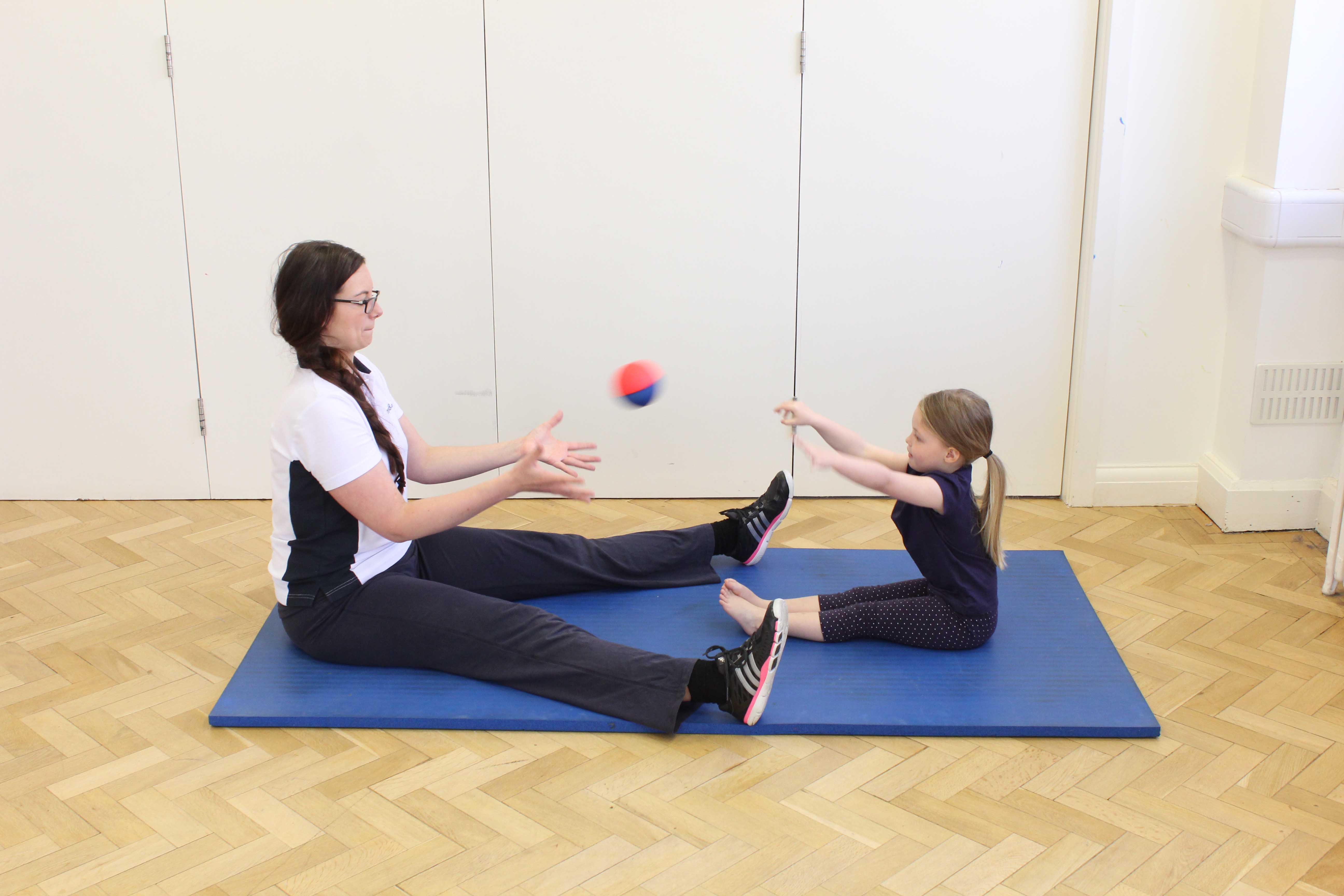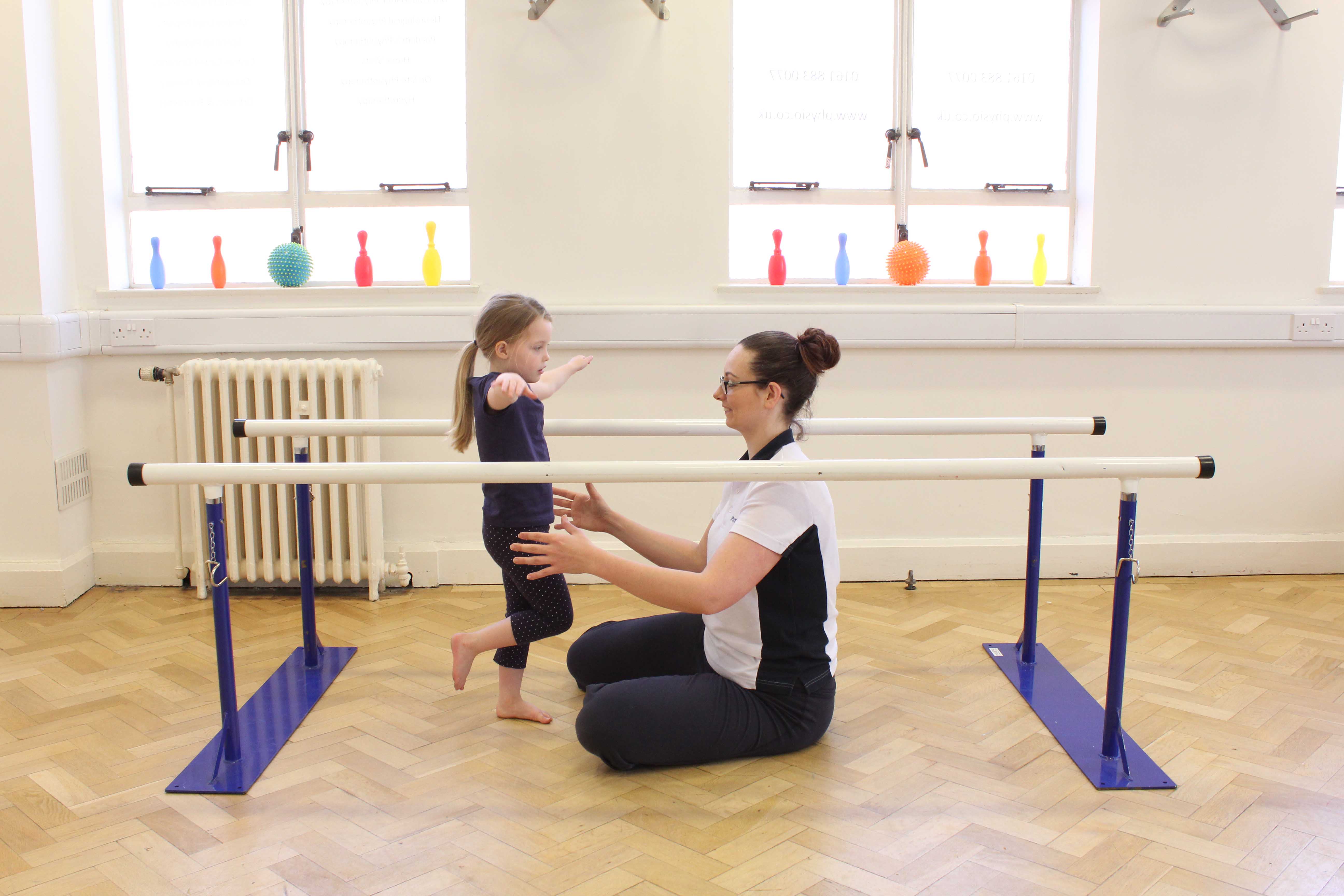What is Rett Syndrome?
Rett syndrome is a rare neurological condition that causes progressive loss of hand use, distinctive hand movements, slowed brain and head growth, problems with standing and walking, seizures, and intellectual disability. Rett syndrome mainly affects girls over the age of 6 months.
What causes Rett syndrome?
Rett syndrome is caused by an abnormal gene on the X chromosome causing production of abnormal forms of the protein. The exact reason for this is unknown but some children may inherit the gene.
 Above: Maintaining upper limb mobility through structered play exercises
Above: Maintaining upper limb mobility through structered play exercisesHow is Rett syndrome diagnosed?
Diagnosis of Rett syndrome can be confirmed by a doctor who will evaluate your child's early growth and development as well as their physical and neurological status.
What are the symptoms of Rett syndrome?
Children typically develop normally in the first 6 months of life but then slowly start to show the following symptoms:
- Difficulty talking and communicating
- Difficulty walking
- Loss of hand use such as picking up toys or stereotyped hand movement as wringing, clapping, or patting their hands
- Growth deceleration as revealed by weight, height and head circumference
- Hypotonia (decreased muscle tone)
- Scoliosis
- Epilepsy
 Above: balance and stability exercises supervised by an experienced paediatric physiotherapist
Above: balance and stability exercises supervised by an experienced paediatric physiotherapistPhysiotherapy for Rett Syndrome
Physiotherapy treatment will help improve your child's physical symptoms, their functional ability and prevent secondary complications such as muscle shortening and weakness and scoliosis. Physiotherapy will keep your child as active and mobile as possible so they can enjoy everyday activities with confidence.
A thorough and individual assessment with one of our speciliased neurological paediatric physiotherapists at Physio.co.uk will look at your child's movement, posture, muscle strength and tone in order to develop a structured rehabilitation program which may include:
- Regular standing with or without a standing frame to improve balance , maintain bone density and stretch muscles
- Facilitating transitional movement in a motivational setting such as getting in and out of bed and sit to stand
- Repositioning in prone lying, long sitting and prone sitting to improve posture and increase comfort
- Gait re-training
- Balance training and practising keeping the body in midline
- Advice on orthotics and splint to maintain a good foot position
- Exercises to strengthen and stretch muscles and improve physical fitness
- Hydrotherapy to improve muscle strength and endurance, gait and core stability
For more information on how physiotherapy can help you child, or to book an appointment please call 0330 088 7800, or book online today!

 0330 088 7800
0330 088 7800


































